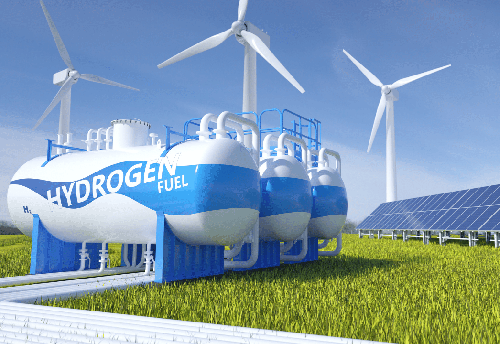< Staff Reporter
The GreeN-H2-Namibia project this week released a detailed factsheet focused on Namibia’s energy sector, as part of an ongoing initiative to bolster a domestic hydrogen economy. The project is a collaborative effort between Dechema Gesellschaft für Chemische Technik und Biotechnologie and the Institute for Social-Ecological Research (ISOE), and funded by the German Federal Ministry of Education and Research.
The document provides an essential overview of the energy landscape in Namibia, and is tailored to individuals who may not have in-depth technical knowledge of the energy sector, as well as international stakeholders interested to invest in Namibia, especially in the green hydrogen economy.
The factsheet encompasses vital information regarding principal stakeholders, the existing regulatory framework, and gives an expansive review of the electricity sector. This includes information on primary energy carriers, dependencies on imports, and the trends in electricity pricing over recent years.
Considering the fast-paced changes in the energy sector, mainly driven by renewable energy initiatives, the factsheet will be subject to regular updates. This iterative approach ensures that the information remains current and reflective of the actual state of the country’s energy sector.
Understanding the energy sector’s intricacies is crucial for both local decision-making and international cooperation. This factsheet serves as a factual, non-technical foundation for all stakeholders involved. It aims to facilitate informed discussions, strategic planning, and responsible investment in Namibia’s green hydrogen ventures. It is an important step in bridging information gaps and providing accessible, reliable data for those interested in investing in the country’s sustainable energy future.
The factsheet is part of GreeN-H2 Namibia and the project’s commitment to providing ongoing, fact-based insights and educational resources necessary for understanding and participating in the emerging opportunities within Namibia’s green hydrogen economy.
The factsheet is available for public access and download.
Dechema brings together experts from different disciplines, institutions and generations to promote scientific exchanges in chemical engineering, process engineering and biotechnology. They identify technological trends, evaluate them and accompany the implementation of research results in technical applications. More than 5 500 engineers, scientists, students, companies and institutions belong to the non-profit association.
ISOE is one of the leading independent institutes for sustainability research. It develops scientific foundations and forward-looking concepts for socio- ecological transformations. To this end, ISOE conducts trans-disciplinary research on global problems such as water scarcity, climate change, biodiversity loss and land degradation, and finds viable solutions that take into account ecological, social and economic conditions.


